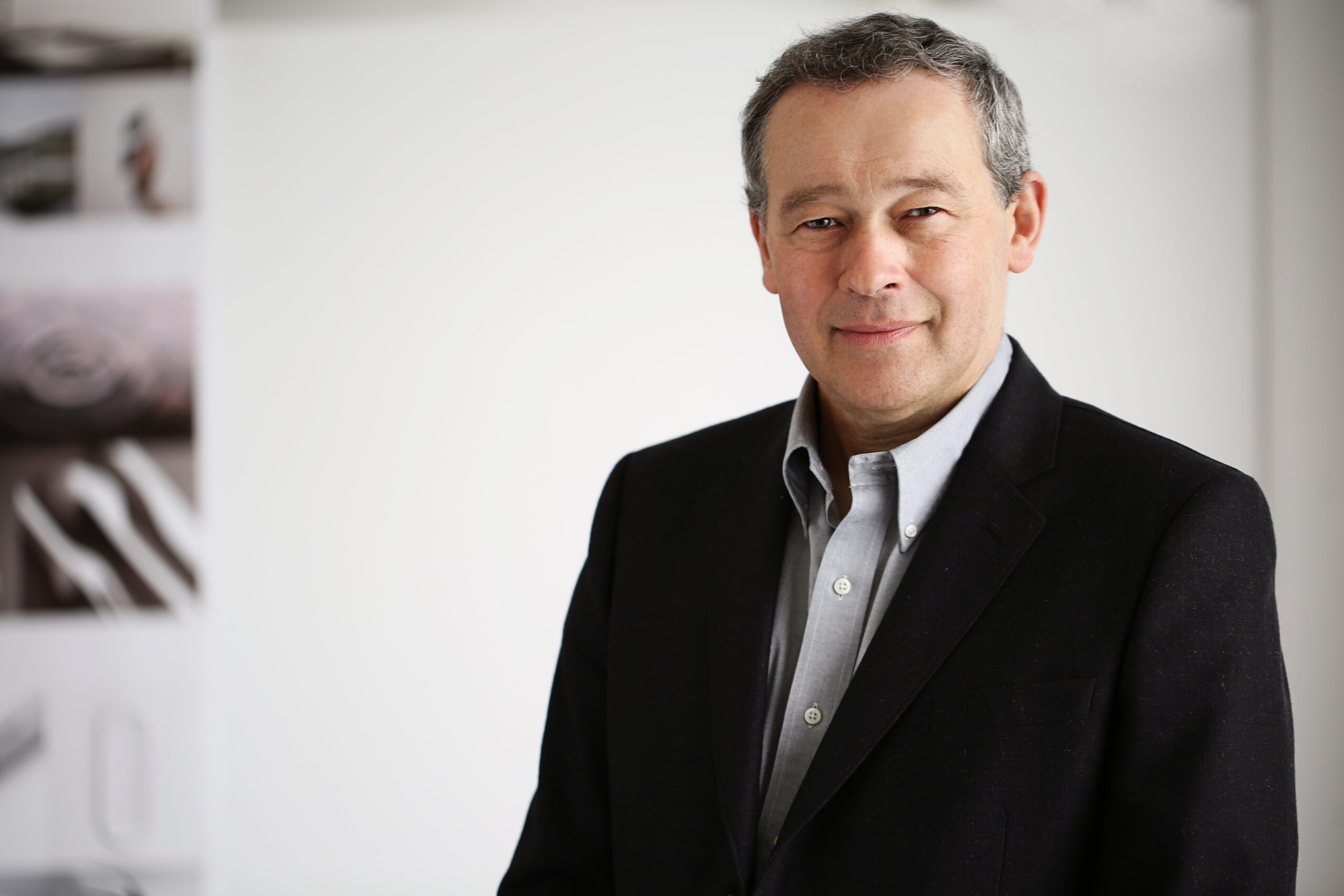Ahead of its first edition, Fabienne Lupo, the former CEO of Fondation de la Haute Horlogerie and founder of ReLuxury, discusses her hopes and aims for the event and why it’s so important for the luxury industry to rethink how to integrate its pre-owned products back into its businesses.
For Fabienne Lupo, The Next Chapter For Luxury To Consider Is Renewal.

Over the last decade, collaborations between luxury brands and contemporary artists have gone beyond mere artistic partnerships towards a new kind of luxury branding.
PARIS – Art and fashion have always developed side by side, for fashion, like art, often gives visual expression to the cultural zeitgeist. During the 1920s, Salvador Dalí created dresses for Coco Chanel and Elsa Schiapparelli. In the 1930s, Ferragamo’s shoes commissioned designs for advertisements from Futurist painter Lucio Venna, while Gianni Versace commissioned works from artists such as Alighiero Boetti and Roy Lichtenstein for the launch of his collections. Yves Saint Laurent’s vast art collection, recently auctioned at Christie’s in Paris, testified to his great love of art and revealed the influence of a variety of artists on his own designs.
In the 1980s, relationships between luxury brands and artists were advanced when Alain Dominique Perrin created the Fondation Cartier. In the Fondation Cartier pour l’Art Contemporain, a book marking the foundation’s 20th anniversary, Perrin says he makes “a connection between all the different sorts of arts, and luxury goods are a kind of art. Luxury goods are handicrafts of art, applied art.”
The Fondation Cartier pour l’Art Contemparain building in Paris
Ahead of its first edition, Fabienne Lupo, the former CEO of Fondation de la Haute Horlogerie and founder of ReLuxury, discusses her hopes and aims for the event and why it’s so important for the luxury industry to rethink how to integrate its pre-owned products back into its businesses.
Fabienne Lupo is no stranger to hosting events. She is, after all, the former CEO of the Fondation de la Haute Horlogerie, and former chairwoman of Watches & Wonders. Bringing people together to share, learn and experience an event is quite simply, second nature to her.
Only this time, it’s not about bringing the world’s finest watchmakers into a giant space to showcase their latest models and innovations. It’s about demonstrating how individuals and the luxury industry can embrace and integrate circularity into their lives.
Lupo’s new venture, ReLuxury, is the first event of its kind dedicated to the re-commerce of luxury and collectible objects, a three-day event held in Geneva on November 4 to 7. And it’s a mission that is close to her heart, a rethink of how best to make use of the old, and to take better care of what we already have.
“I hope that it will make it simpler for people to understand that buying second-hand is actually being responsible, and a smarter solution for businesses,” Lupo told Luxury Society in an interview. “I really want to change the perspective on that and help them realise that we need to rethink the way we consume luxury goods.”
“We cannot continue to consume the way we used to, especially luxury goods, because as an industry that expresses intrinsic values of timelessness, repairability, quality, it really should be a leader in this field,” she added. “It's why I wanted to create this event and raise awareness about this topic.”
The event is intended to be a multi-sector showcase for watches, jewellery, fashion, handbags, and other luxury accessories, and aims to offer a 360-degree vision of the pre-owned market. With more than 30 exhibitors, and around 500 exhibits, ReLuxury's partners include eBay, WatchBox, Richard Mille, and Origyn Foundation.

"Scarcity, supply chain issues and the rising popularity of recommerce with younger generations are all leading luxury brands to answer to the demand of resale," said Tirath Kamdar, General Manager of Luxury at eBay in a statement.
"Luxury brands must now consider the various life cycles of a product, with quality and authenticity being top priorities in the secondary market. Authentication has now become table stakes for any retailer or marketplace competing in the resale space and has become an expectation from consumers," he added.
A large part of the event will be centred around helping brands rethink about circularity, meaning how to better incorporate the practice into their business, which is why ReLuxury will host talks and interviews with around 30 speakers, a start-up lab, a restoration clinic as well as a dedicated area for visitors to bring their luxury goods to be valued, certified and re-sold.
“Of course, we will have a salon, a commercial part, because it's always very interesting,” Lupo said.“People are really interested in buying certified pre-owned watches, or handbags, or fashion, but they can also bring their products to be evaluated by experts, and visitors are encouraged to do so.”
The figures for the secondhand luxury goods market speak for themselves. According to a report published earlier this year by Bain experts Claudia D’Arpizio and Federica Levato, the global secondhand luxury goods market grew to €33 billion in 2021, up 65 percent from 2017. It is also expected to exceed 50 billion euros in 2025, according to the Luxury Outlook 2022 study, conducted by BCG x Comité Colbert.
“Extending the lifetime of luxury products is a powerful way for brands, fashion platforms, and investors to show their commitment to sustainability,” D’Arpizio and Federica Levato wrote in their report.
“The network-based nature of second-hand luxury retail (and its capacity to give brands a richer, data-led understanding of young consumers’ behaviour) is another plus,” they added. “Yet there are a few points still to solve: creating a compelling value proposition, cracking operational complexity (e.g., authentication, start-up stock, and margins), defining a winning branding (or rebranding) strategy, maximising customer outreach, and ensuring that the resold items are valued and priced properly.”
The salon also aims to be an opportunity for those in the industry as well as individuals to connect over circularity, to better understand the opportunity that extending the lifetime of a luxury product can bring to brands.
“During the talks, and the programme, we hope it will provide the chance for our visitors to relax, to connect, and to network with investors who are interested in their business models. It’s why we have invited a lot of newcomers in the business to talk, and help explain what exists already and what we can do.”
Looking forward, Lupo hopes to continue holding ReLuxury in Geneva as an annual event, with additional events in different cities around the world, like London, Paris, and Dubai. She was also considering the United States and Asia.
“I know that there is a lot of curiosity and a lot of interest, but let’s do the first one, and make it a success. For me, this is the big challenge, of course. And hopefully, ReLuxury could become a great community around circularity, certified pre-owned and the resale of luxury goods.”

Senior Editor, Luxury Society
Limei Hoang is a senior editor at Luxury Society, based in Geneva. She was formerly an associate editor at the Business of Fashion in London. Previously, Limei spent six years at Reuters as a journalist, and she has also written for the BBC, The Independent, and New Statesman.



